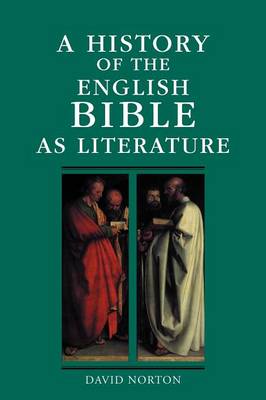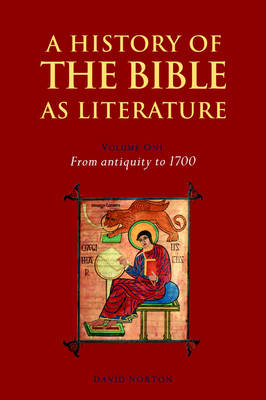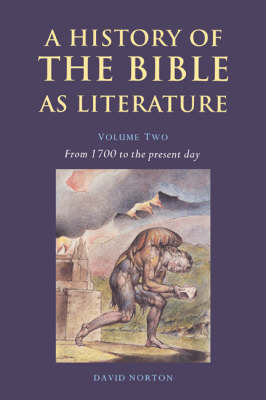A History of the Bible as Literature
3 total works
Revised and condensed from David Norton's acclaimed A History of the Bible as Literature, this book, first published in 2000, tells the story of English literary attitudes to the Bible. At first jeered at and mocked as English writing, then denigrated as having 'all the disadvantages of an old prose translation', the King James Bible somehow became 'unsurpassed in the entire range of literature'. How so startling a change happened and how it affected the making of modern translations such as the Revised Version and the New English Bible is at the heart of this exploration of a vast range of religious, literary and cultural ideas. Translators, writers such as Donne, Milton, Bunyan and the Romantics, reactionary Bishops and radical students all help to show the changes in religious ideas and in standards of language and literature that created our sense of the most important book in English.
A History of the Bible as Literature: Volume 1, From Antiquity to 1700
by David Norton
Published 22 April 1993
It is regarded as a truism that the King James Bible is one of the finest pieces of English prose. Yet few people are aware that the King James Bible was generally scorned or ignored as English writing for a century and a half after its publication. The reputation of this Bible is the central, most fascinating, element in a larger history, that of literary ideas of the Bible as they have come into and developed in English culture; and the first volume of David Norton's magisterial two-volume work surveys and analyses a comprehensive range of these ideas from biblical times to the end of the seventeenth century, providing a unique view of the Bible and translation.
A History of the Bible as Literature: Volume 2, From 1700 to the Present Day
by David Norton
Published 24 September 1993
Early-eighteenth-century literary critics thought the King James Bible had 'all the disadvantages of an old prose translation'. But from the 1760s on criticism became increasingly favourable. In the nineteenth century it welled into a chorus of praise for 'the noblest monument of English prose'. This 1993 volume, the second of a two-volume work, traces how that reversal of opinion came about and helped to shape the making and reception of modern translations such as the Revised Version and the New English Bible. At the same time the story of the development of modern literary discussion of the Bible in general is told. From the Augustan discovery of Longinus' comments on Genesis through such major figures as Robert Louth to modern critics such as Frank Kermode and Robert Alter, this story reveals a fascinating world of insights and repetitions of received opinions. It shows not only how criticism has shaped understanding of the Bible, but how the Bible has shaped literary criticism.


